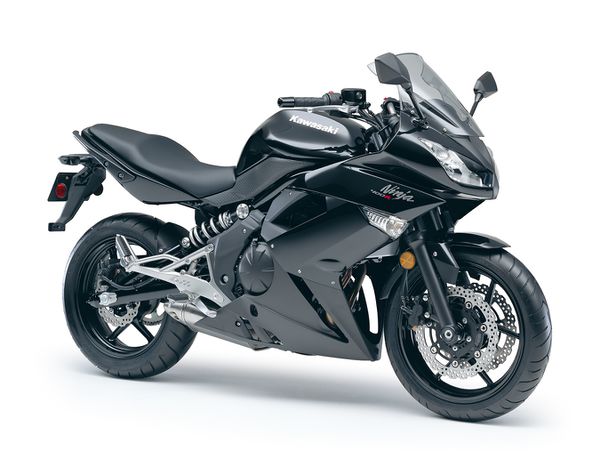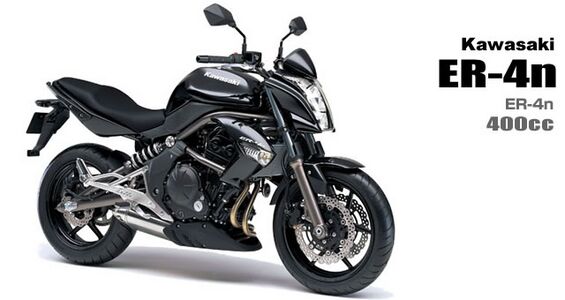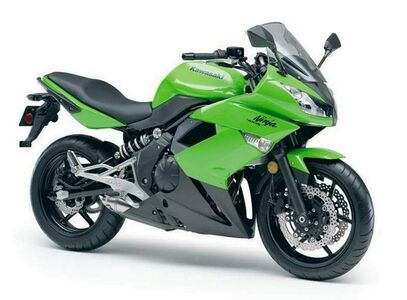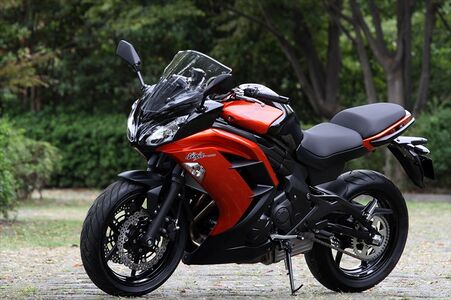Difference between revisions of "Kawasaki ER-4"
m |
m (→Photos) |
||
| Line 32: | Line 32: | ||
== Photos == | == Photos == | ||
| − | + | <gallery mode="packed" heights=200px> | |
| − | + | File:Mk er-400.jpg| | |
| − | + | File:Ninja-400r 2010 1.jpg| | |
| − | + | File:Kawasaki-ninja-400-2014-12.jpg| | |
| − | + | </gallery> | |
| − | |||
{{Ads_feed}} | {{Ads_feed}} | ||
{{Ads_post}} | {{Ads_post}} | ||
Latest revision as of 17:55, 27 June 2023
The naked model Kawasaki ER-4N was first introduced in August 2010 along with the Kawasaki Ninja 400R version. In fact, both models were 400cc domestic Japanese versions of Kawasaki ER-6N and ER-6F. The main differences from older models were in the engine, intake and exhaust systems. In all other respects, they were almost identical.
Lineup :
Main competitors :
The Kawasaki ER-4N and Kawasaki Ninja 400R models are manufactured in Thailand for the domestic Japanese market, but some models were also sold in Canada and New Zealand.
Modifications :
- Kawasaki ER-4N - naked version.
- Kawasaki Ninja 400R - version with a full plastic body kit in a sporty style.
The models were based on a 2-cylinder in-line liquid-cooled engine with a volume of 399 cc. see, issuing 44 hp. power and 37 Nm of torque. The main characteristics of the motor are achieved at 7500-9500 rpm.
By 2014, the Kawasaki ER-4N model was discontinued, leaving on the market only the "sports" version of the Kawasaki Ninja 400R, which by that time had undergone restyling (the base from the 2nd generation Kawasaki ER- 6F) and removed the "R" from the name - Kawasaki Ninja 400.
Among the features of the Kawasaki ER-4 are a steel frame, an injection engine, a simple telescopic fork and a monoshock (adjustable in preload), a 6-speed gearbox, powerful 2-disc (300 mm) front brakes with ABS as an option, a fuel tank for 15 l and 199 kg of curb weight.
Photos
Specifications
Specifications Kawasaki ER-4N (Ninja 400R):
| Model | Kawasaki ER-4N
Kawasaki Ninja 400R Kawasaki Ninja 400 |
|---|---|
| Motorcycle type | naked
sports tourist |
| Release year | 2010+ |
| Frame | steel |
| Engine type | 2-cylinder, 4-stroke, in-line |
| Working volume | 399 cc cm. |
| Bore / Stroke | 68.4mm x 54.3mm |
| Compression ratio | 11.0: 1 |
| Cooling | Liquid |
| Number of valves per cylinder | DOHC, 4 valves per cylinder |
| Fuel supply system | injector, 2x Keihin 34 mm |
| Ignition type | digital |
| Maximum power | 44 hp at 9500 rpm |
| Maximum torque | 37 Nm at 7,500 rpm |
| Gearbox | 6-speed |
| Drive type | chain |
| Front tire size | 120 / 70ZR17 |
| Rear tire size | 160 / 60ZR17 |
| Front brakes | 2 x 300mm discs, 2-piston calipers (ABS opt.) |
| Rear brakes | 1 disc, 220 mm, 1-piston caliper (ABS opt.) |
| Front suspension | 41mm telescopic fork, 120mm travel (125mm from 2014) |
| Rear suspension | monoshock (preload adjustment), stroke - 125 mm (130 mm - since 2014) |
| Dimensions (Length x Width x Height) | 2100mm × 760mm × 1100mm - Kawasaki ER-4N
2100mm × 760mm × 1200mm - Kawasaki Ninja 400R 2110mm x 770mm x 1180mm - Kawasaki Ninja 400 |
| Saddle height | 785mm - Kawasaki Er-4N
790mm - Kawasaki Ninja 400R 805mm - Kawasaki Ninja 400 |
| Fuel tank capacity | 15 l |
| Maximum speed | 170 km / h |
| Acceleration to 100 km / h (0-100) | 5.5 sec |
| Motorcycle weight (curb) | 199 kg, 203 kg (ABS) - Kawasaki ER-4N
203kg, 207kg (ABS) - Kawasaki Ninja 400R 209 kg, 211 kg (ABS) - Kawasaki Ninja 400 |
Documentation



